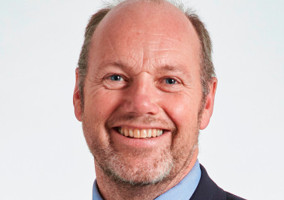I’ve been hard at work for the last few months alongside the Charity Commission, NCVO, Office for Civil Society, Small Charities Coalition and Navca working on The Charity Digital Code of Practice. This new initiative aims to help charities with one of the problems facing every sector at the moment: how can we use digital to be even better at what we do?
Digital is a particularly pressing issue for charities. Resources are tight and it can be hard to know what to prioritise. But it represents a massive opportunity for our sector to increase impact, be sustainable and improve collaboration. We know from Lloyds Business Digital Index that highly digitally capable charities are twice as likely to save time, and ten times as likely to save money. Digitally confident charities are also twice as likely to see an increase in donations.
Whether we like it or not, digital has changed the expectations of our audience. I recently found myself not donating to a small charity in my local area as they don’t take donations online. That sounds brutal but I was having a frantic week and just didn’t have the time to take cash to their office or write a cheque, much as I would have liked to.
We’ve devised the code in partnership with the steering group and also more than thirty charities who have shared their thoughts on various versions. We’re very grateful for their insights, many of which we have woven into the code. Time and again one key issue has emerged from their feedback: trustees and senior management teams are central to charities progressing with digital. This is not breaking news: Lloyds’ report showed that 50 per cent of charity leaders lack confidence in introducing digital change, whilst our latest Charity Digital Skills Report showed that staff also worry their own leadership teams are falling behind in this area, and the majority of charities (69 per cent) cite their board’s digital skills as low or having room for improvement.
Leaders say digital is not an add-on
With that in mind, I asked three charity leaders to share their thoughts on how they see digital and what they’d advise charities to do about it. Gillian Murray, chief executive of Pilotlight told me that charity leaders have to take responsibility: "Digital is not an add-on or even optional in my view. And it’s not about tools or hiring a ‘digital’ person. I believe digital is a fundamental, positive opportunity to do more and better, as well as differently. As such, it’s a strategic issue and needs clear buy-in and progression at executive and board level."
James Blake, chief executive of YHA (England and Wales) thinks that leaders need to see digital as the golden thread running through their charities. He believes that "Digital needs to be part of our corporate strategy and culture – at all levels of the organisation. There are countless examples of businesses whose fortunes have been made, or lost, by their ability to embrace and utilise digital effectively across the whole organisation, and the charity sector is no exception."
In cash strapped times, the leaders I spoke to were mindful that digital could help them do more with less. I was particularly inspired by a blog by Jane Ide, chief executive of Navca, on how digital had helped her team to be more productive. Blake gave me another example: "Very early on in our digital transformation, we replaced our expensive annual printed hostel directory with an online version, and later on replaced our printed member newsletters, with e-newsletters. Both generated savings on print and postage costs and gave us the ability to personalise and update content instantly."
As well as saving money, digital can help charities scale up their impact. Eve Critchley, head of digital at Mind told me that, "Last year, our online information was accessed almost 11 million times and more than 100,000 people accessed peer support through our online communities like Elefriends, which allows people to give and receive support in a way users are not often able to do, particularly if they feel unable to confide in the people around them or don’t have strong social networks. So digital is already vital to Mind’s work." We hope that charity leaders will use the code to fuel their ambition about what digital can help them achieve. As they progress with digital, Blake and the YHA team are already reaping the benefits. "Our online accommodation bookings have grown by over 130 per cent in recent years following the creation of our ecommerce and digital team at YHA," he told me.
Murray is already planning to use the new Code: "I think it’ll be a great tool to help us set specific objectives around digital. But actually I’m planning to get the whole team involved in planning how we use it." Blake sees it as an opportunity, "to structure our approach and re-enforce and remind us that we need to raise digital skills and understanding across the whole organisation now, right from the board to contact centre advisors to hostel teams," helping their staff to keep their audience’s needs at the centre of everything they do. Critchley says that "We’re starting to implement our new digital strategy at Mind and the code of practice provides a useful benchmark for best practice, as well as lots of handy conversation starters to make us think and consider the best way of being digital. It will help make sure that we’re continually improving what we do and to embed digital change at all levels of the organisation."
We’re really looking forward to hearing what charity leaders think of the code. Please do get involved with the consultation when it opens next week. Tell us what you think and shape how the charity sector can make the most of the opportunity that is digital.
The Charity Digital Code of Practice launches on 3 July over at www.charitydigitalcode.org, where you can also respond to the consultation until 25 September. Get involved with the conversation about the Code on #charitydigitalcode
|
Related articles











